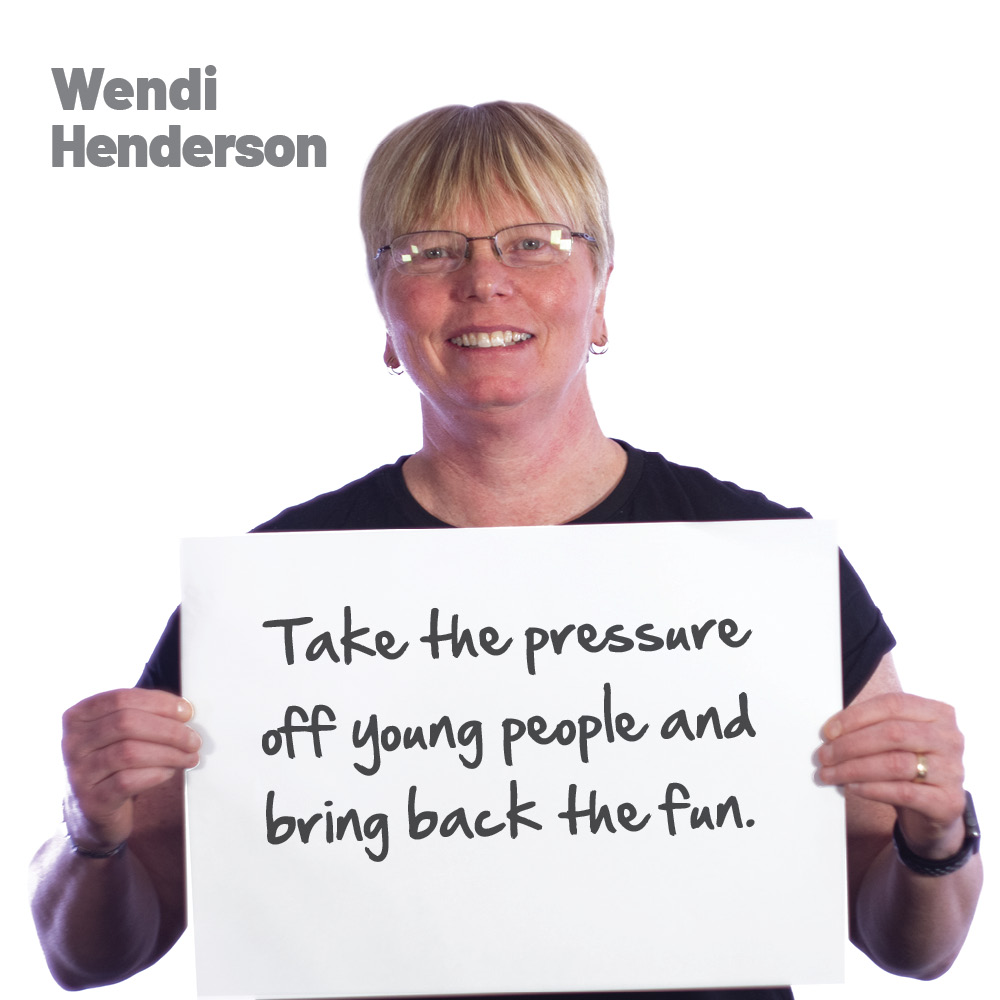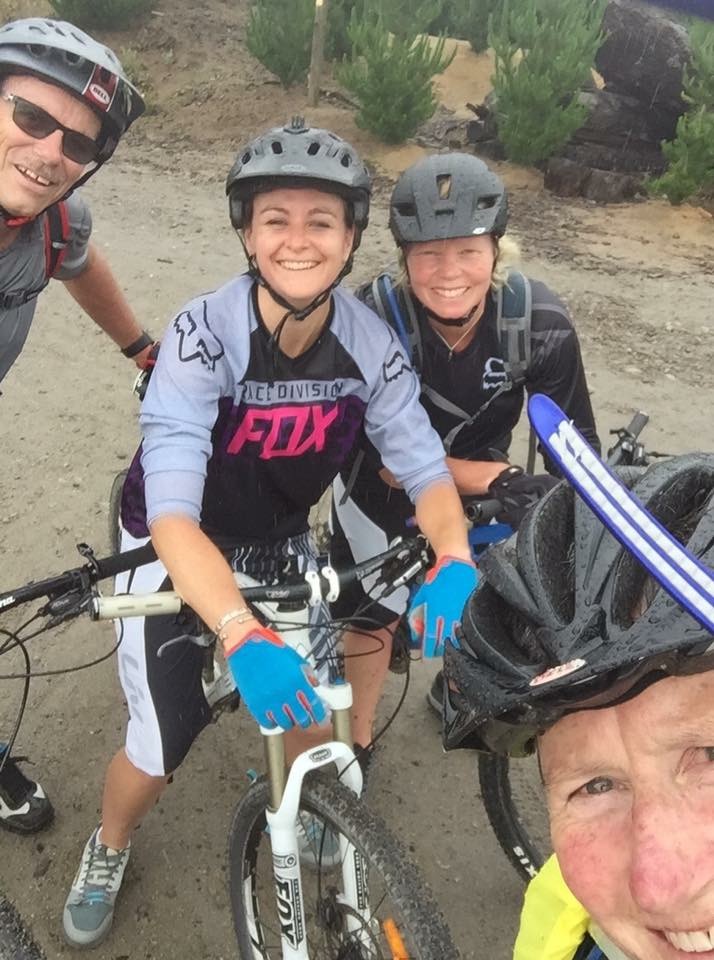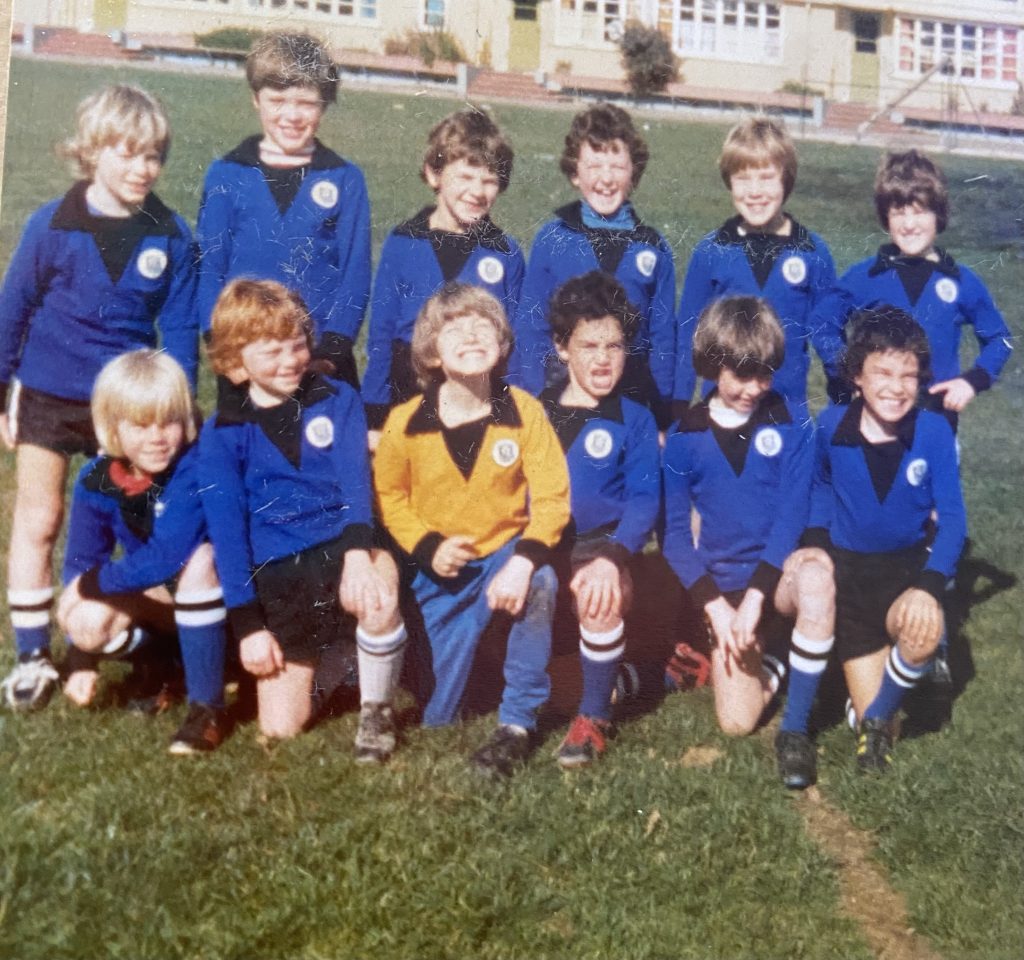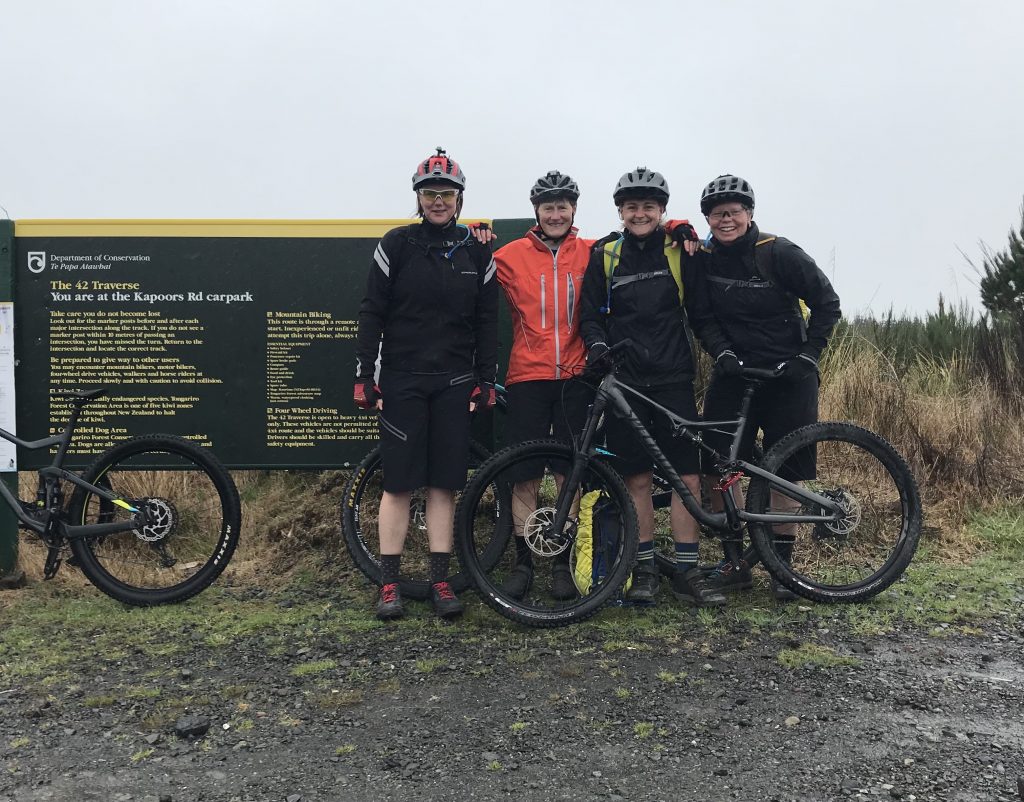Former New Zealand footballer Wendi Henderson wants young people to enjoy their sports without any pressure, just as she did in her youth.
It wasn’t until she entered the coaching scene that the ex-Football Fern experienced first-hand the shift change where she found young athletes often overloaded, overtraining and under pressure.
“A lot of the elite level stuff has been channelled down into junior and youth sport where kids are getting pushed and pulled,” says Wendi.
“I’d hear parents say ‘my daughter’s getting pushed and pulled, she wants to play a variety of sport but we’re scared if she doesn’t do what her coach asks it’s going to be detrimental to her progress and career aspirations’.”
As a result, and as a Balance is Better ambassador, Wendi wants to bring fun back into junior and youth sport.

“Coaches need to understand how to get the best out of their players without pushing down elite requirements or being too heavy handed, ensuring ultimately that kids are having fun, while also learning and developing at their own pace.
“Often, as coaches, we’re too quick to want to win games and it might mean little Johnny and Mary are on the bench for the next four weeks, which will more than likely result in them never playing that sport again.
“It’s having that heightened awareness about why children are involved in sport, then trying to get the best out of them while they have fun and grow and develop.”
Surrounded by support

Wendi’s own journey has involved super supportive family, teachers, coaches and employers.
With their encouragement, Wendi wound up playing 64 games for the Football Ferns between 1987 and 2008, including two FIFA world cups in 1991 and 2007.
“I had really good balance across all those key factors in anyone’s life – family, school and teachers/coaches.”
“As I got older I had a good employer that understood in an era that wasn’t professional that I played at an elite level and needed to balance my leave across each year and be away a bit, and 25 years later I’m still there.
“I’ve been fortunate that I’ve had the ability and opportunity to play elite sport and do something that I really love while juggling a career.
“Lastly I’ve had some amazing coaches along the way, and they have taught me some really good lessons.”
Wendi talks about her trial for a particular team at a junior level where she was told by a coach she didn’t make the team because she was a girl.
Her family and club coaches rallied around her, taking a more lighthearted approach and nicknamed her “Fred”.
“I didn’t really understand at the time what was really happening, I actually think my club coaches at the time were more disappointed than me. Their support and approach though helped me to bounce back quickly from that experience and move on.”
It’s that support which has helped Wendi to realise her dreams.
“Nothing has come easy to me, I was told I had potential but I had to put in the hard work to make it, and knowing if I put in the hard work that those people are there to support you makes all the difference.”
Growing up in Wellington as the middle child of three in a single parent household, Wendi’s Mum played social football with a group of friends and they’d all often watch national league games.
“It’s where I really started my journey, on the sideline with a ball at my feet all the time was what was natural.
“My brother and I were constantly out in the backyard with a ball, we drove Mum crazy, as the dog loved it and spent the whole time barking at the ball!”
Becoming an all-rounder

Football has always been Wendi’s first love, but she played multiple sports as a youngster, including softball, waterpolo, cricket, basketball and swimming.
It was easy then because sport stayed in their own lanes and one didn’t start until the other seasonal code ended.
“When I got to college I was in awe of all the experiences you could have, my Mum often tells the story of me coming home to say I was going to play miniball and she asked when I would fit it in.
“I told her I had nothing on Fridays, so Fridays became miniball night – I was busy with sport but none of it felt overloaded.”
Instead Wendi says playing a variety of sports allowed her to become an all-round athlete.
“All of those sports really contributed to providing really different, diverse environments, really different coaching and coaching philosophies which almost made you resilient because some things I was naturally good at and other things I had to work quite hard at.
“Young people today need to be encouraged, to play a range of sports and stick at them for as long as they can – those varied experiences will help them to develop a whole lot of other skills.”
By 16 Wendi had made her Football Ferns debut, but she continued to play softball in summer.
She traded her bat for her boots when she decided to focus on the Football Ferns, becoming what is now part of sports history, qualifying then playing in the first ever women’s FIFA World Cup at aged 19.
“It’s one of my fondest memories, pulling on the white jersey was pretty surreal, but what an experience.
“It had always been an ambition of mine from a young age, I was privileged to have a close friend, a friend of Mum’s, who played in the first ever women’s New Zealand team in 1975, so I always knew there was a pathway.”
As Wendi knows, sport doesn’t always go in a straight line.
“It’s important to understand that just because you don’t make something doesn’t mean your whole world is over, always have a plan A, B and C.”
Communication key

Communicate with support networks too.
“Don’t be afraid to tell coaches you’re feeling tired or overloaded or that you need a break, that goes for parents too because sometimes they are the drivers of wanting their kids to be involved.”
Wendi recalls being surrounded by women footballers for most of her young life – as a 12-year-old she trained and played alongside Football Ferns with her Miramar Rangers team, and the coach then was double international Marilyn Marshall.
“It was scary and awesome at the same time, but all about the fun, and because I was little they nicknamed me Weed or Weedie, everyone had a nickname and that has stuck to this very day, everyone, even my family call me Weed.”
“Weed’s” family remains tightknit, having overcome tragedy along the way.
“I lost my sister to cancer, who left behind three young children, my stepfather and my grandmother within three years.”
Her strong support network outside of her partner and family is still there too.
“Some of the people I started playing with at Miramar are still my best friends today, and a lot of friendships I’ve made through football have lasted 40-odd years.”
Wendi still holidays with some of them, often heading into the hills mountain biking.
Outside of her work as operations manager for Wellington City Council’s parks, sport and recreation, mountain biking, road cycling and the gym keep her fit and healthy.
She’s also involved in football, learning about governance as part of the Capital Football Board, and as assistant coach of the Football Ferns’ campaign to last year’s World Cup in France.
“I still love the game, I’m still an avid watcher of the game, I follow the national league, it’s always going to be a real keen interest of mine.”










